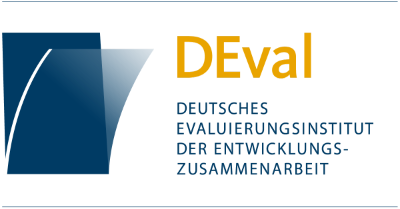IPDET 2023 Workshop: Evaluation of Climate Change and Development
Based on current concepts and frameworks, practical examples and interactive group work, the course covers methods and tools for the evaluation of climate finance and development impact, including evidence reviews, SDG evaluation, advanced case studies analysis, vulnerability assessments and geospatial evaluation.
DESCRIPTION
The climate crisis is one of the greatest challenges in human history. The global consequences of climate change threaten the preservation and development of natural and human systems and are already causing enormous ecological, social and economic costs. The negative impacts of climate change severely affect developing countries and emerging economies in particular. At the same time, there are still opportunities to bring people and the environment into a sustainable and resilient state.
Climate and development are closely intertwined. As countries increasingly respond to the demanding impacts of climate change, evidence-based decision making for climate change adaptation and mitigation has become ever more urgent. Effective monitoring, evaluation and learning is key for better and timely climate policies and resilience strengthening. Timely and methodologically sound evaluations of climate and development interventions support governments and development co-operation partners in improving their decision-making, especially with regard to the various uncertainties resulting from climate change.
However, evaluating climate mitigation and adaptation interventions faces a number of particular technical challenges. Key among them is an incomplete understanding of future changes in climate, socio-economic and ecological systems as well as the interactions between those changes. This is augmented by other challenges such as difficulties in attributing outcomes to specific interventions, shifting baselines and objectives on climate resilience, and long time periods for outcomes and impacts of adaptation and mitigation interventions to unfold.
In order to cope with these challenges and to provide useful and up-to-date information for better policies and decision-making processes, evaluation increasingly needs more systematic and rigorous approaches to synthesize existing knowledge and to fill evidence gaps. The workshop refers to this responsibility drawing upon comprehensive experiences of the German Institute for Development Evaluation (DEval) in cooperation with international partners including multilateral and bilateral evaluation units as well as global evidence providers, partner countries and universities.
The workshop is interactive, using a sequence of lectures and case studies, practical group work and exchange among instructors and participants. The participants will go through different modules on key issues of evaluation in the nexus of climate and development. Topics addressed in this course include the implications for evaluation of climate-relevant concepts such as resilience, vulnerability, mitigation and adaptation, loss and damage and transformation; the role of evaluation in the context of CoP negotiations and global stocktakes as well as SDG and country-led evaluation; and the evaluation of transformative change. Based on the introduction of relevant evaluation questions with regard to relevance, coherence, effectiveness, impact and sustainability the instructors will introduce cutting-edge and climate-responsive approaches, methods and tools, including different forms of evidence reviews and meta-analysis, advanced case studies analysis, vulnerability assessments and geospatial evaluation.
OBJECTIVES
The workshop aims to increase participants’ knowledge and skills in the evaluation of complex climate change and development interventions. After the workshop the participants
- are aware of key climate-relevant concepts and frameworks as well as their implications when commissioning or conducting (complex) evaluations;
- understand the basics of climate politics and negotiations, especially through a lens of the role of evaluation;
- are becoming familiar with applying concepts and approaches for the evaluation of transformative and just climate interventions, SDG and country-led evaluation;
- know how to commission, design and conduct climate evaluations; and have a good grasp of rigorous approaches to synthesize existing knowledge. They have learnt how to fill the evidence gaps by applying (intermediate / advanced) data collection and analysis methods.
RECOMMENDED FOR
Evaluators and commissioners. This is an intermediate level workshop. It is intended for evaluators and commissioners who aim to expand their foundational understanding of evaluation of both climate change mitigation and adaptation interventions or development evaluations in context of increasing vulnerability or climate-related risks.
PREREQUISITES
The workshop requires foundational knowledge of quantitative and qualitative methods and designs for complex evaluations. For the interactive group work, some first experiences in development project and program evaluation and/or thematic evaluations are advantageous.

